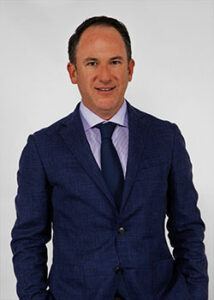My route into legal services has been a slightly unusual one. I did not graduate from a legal program and spent the better part of my career as HR Immigration Manager at Boston Consulting Group (BCG). However, as a business studies graduate I have always worked adjacent to law, and when the chance to transition into an operations role came up I grabbed it.
In my previous role at BCG, I had worked closely with Antonia Peabody. In 2017 she launched what is now BCG’s legal strategy and operations group and it was always my intention to follow her. I had been tangentially working in the legal field, the issues thrown up by legal departments interested me a lot, and in my role as immigration manager I had started to work more and more on designing processes and building out strategy. That made the move to legal operations (legal ops) seem like a natural fit for me.
In some ways it is an unusual background, but I feel the most successful ops functions bring together a diverse talent pool. A nontraditional legal background allows you to examine how the legal function works with fresh eyes, and to bring a perspective that may be different from that of a lawyer. Besides, our philosophy in the BCG legal strategy and operations group is that if you put talented people into a role, they will contribute to your strengths.
The legal strategy and operations group was formed at an inflection point for BCG. We were acquiring businesses, branching out into new businesses, and our digital business lines were taking off. A lot of exciting change and growth was taking place, but when you’re facing that sort of growth there is a risk that different teams will end working in silos. The question we faced was how to create a group that could support the strategy we needed to move forward as a coherent organisation while also putting in place the operations needed to be successful across many different dimensions.
A big part of my role is focused on enhancing our contract management database. We have an entire sub-team dedicated to the day-to-day side of managing our contracts, but as ops professionals we look at the longer-term strategy and ask how existing practices can be modified to help our senior leaders manage the full contract cycle process.
There is of course a legal component to this work, it presupposes a high degree of familiar with legal terminology and processes, but in essence it is about taking a practical challenge, breaking it into its component parts, and distilling it down to something that can be communicated to senior leaders, both internally and externally. It’s about driving change, orchestrating communications and continuous improvement. To do that well you need a clear vision and purpose, and it always starts with a “why?”.
Having a purpose-driven process is particularly important when it comes to the in-house function. It can be tough for legal teams to do this. They can be vast, and they are involved in so many different things from employment to litigation to everything else. In spite of that, and perhaps even more so because of that, it’s helpful to ask yourself the question of what you are trying to do as a function and why you are trying to do it.
The temptation for a lot of in-house teams is to set things up in a very transactional way that looks to a large extent like the model of an internal law firm. That is not really the best structure, and it doesn’t give the best results. Legal should not let itself become a dumping ground – it overburdens the lawyers and takes away from what the function can deliver to the business.
Setting up things in a way that lets you extract data and make data-driven decisions is essential to this. With our contract management platform, we track everything: how many contracts are going in; what the adoption rate of the platform is among senior staff; whether it is being used properly; how aggressively we are pushing back on certain contracting terms; the risk profile of a class of contracts, how practical we are in our terms.
This is giving us new and incredibly useful insights into the work the legal team does, how it intersects with other functions in the business, the expectations and needs of our end-users, and where the bottlenecks in the process might be. From a legal ops perspective, however, we always try to keep in mind that while technology can play a big part here, technology itself should not be the goal. The goal is being able to structure decisions and processes in a way that is based on data and numbers.









